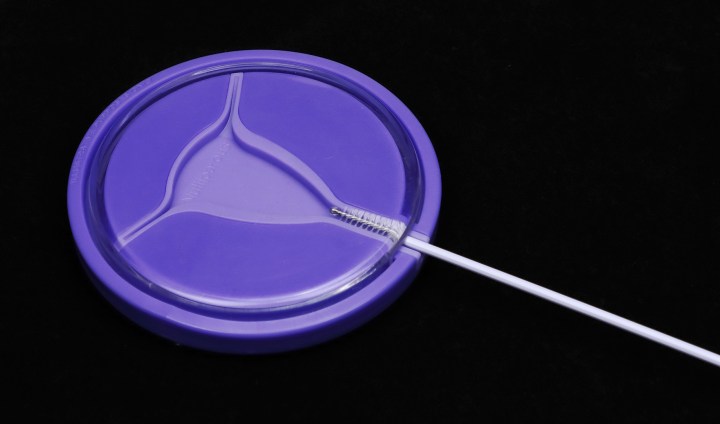SELF-SCREENING OP-ED
Cervical cancer a disease of poverty and inequity — inclusive treatment access is essential

We must increase access to cost-effective, locally manufactured diagnostics so that everyone who requires cervical cancer screening can gain access to it.
Cervical cancer kills one woman across the globe every two minutes. Significantly, this is a cancer that is both preventable and curable if detected early. Like so many diseases, cervical cancer is a disease of inequity. Women living in poverty, in lower-income countries or living with HIV are disproportionately affected.
In Africa, mortality rates are a harrowing 18 times higher than in the rest of the world. According to the Cancer Association of South Africa, 22.2 million women aged 15 and older are at risk of cervical cancer — 10,702 women are affected annually, resulting in 5,870 fatalities. This equates to between 23 and 27 women per 100,000 exposed to cervical cancer compared to the global average of 16.
Women living with HIV on average have a six-fold higher risk of developing cervical cancer than women who are not living with HIV.
In 2020, the World Health Organization (WHO) launched a global strategy to eliminate this disease as a public health problem. The potential impact of the WHO strategy is profound: if 90% of girls receive full HPV vaccination by age 15; 70% of women undergo screening twice in their lifetime with a high-performance test; and 90% of identified cases receive treatment across 78 low and middle-income countries, a staggering 15 million lives could be saved by 2030, and 62 million deaths from cervical cancer could be prevented by 2120.
Read more in Daily Maverick: Can South Africa stop cervical cancer in the next 40 years?
The human papillomavirus (HPV) is the primary cause of most cervical cancers. The majority of women who acquire HPV will not have any symptoms and will recover from the virus without any severe complications.
In a few but deadly number of cases, the HPV infection can persist. Over time, this infection produces changes in the cervix’s cells. If left untreated or undiscovered, these cells will result in aggressive cervical cancer over a five to 20-year period.
The HPV vaccine is a crucial tool in the long-term eradication of the disease. One dose of the HPV vaccine is enough to protect girls from developing cervical cancer.
As of 2022, 61% of South African teenage girls between nine and 14 completed the recommended two-dose regimen of HPV vaccination.
But the HPV vaccine came too late for the current generation of adult women, for whom cervical screening has become pivotal. District health data estimates that over the past five years, around 50% of women over 30 have been screened with conventional and liquid-based cytology in the nine provinces of South Africa.
Self-screening — a source of hope
The adoption of self-testing for HIV was a significant step; with lessons from that experience, combined with an explosion in diagnostic technology prompted by Covid-19, means that we are now much closer to new approaches for early detection of and screening for cervical cancer.
Policymakers and service providers are accelerating the adoption of these convenient self-collection and self-sampling modalities, making it possible to roll out screening on a much greater scale.
Local studies have shown that self-screening and self-collection are not only acceptable, but preferable to pelvic examinations conducted by a healthcare provider. The reality that women could effectively screen themselves for cervical cancer opens a very real opportunity for culturally acceptable screening to reach women everywhere.
Read more in Daily Maverick: Self-collected human papillomavirus tests are feasible — but still a long way off
Dr Nono Simelela, previous Assistant Director General for Family, Women, Children and Adolescents at WHO, says that “incorporating HPV self-collection testing for women revolutionises the screening process by bringing it to the primary healthcare level.
“This innovative approach not only empowers women to take charge of their own health but also eliminates the need for invasive pelvic exams. Moreover, it addresses capacity issues as molecular tests can be easily scaled up and are less reliant on the scarce availability of highly skilled pathologists.
“It is important to note that the World Health Organization has already approved this method, allowing for the democratisation of screening without abandoning other screening methods. By implementing HPV self-collection testing, we can transform women’s healthcare and reduce the burden of cervical cancer on a global scale.”
Collaborating on a clinical trial in the Eastern Cape, Find is evaluating the viability of self-collected swabs transported in a dry state, potentially expanding access to screening services in rural and remote communities by increasing the longevity of a “valid” sample.
For South Africa to make significant inroads into curbing cancer, we must incorporate cervical cancer into community-led advocacy and education efforts to raise the demand for screening and testing. We must also prioritise and speed up the implementation of emerging women-centric technologies, particularly those that permit self-sampling.
We must increase access to cost-effective, locally manufactured diagnostics so that everyone who requires cervical cancer screening can gain access to it.
To be effective, these interventions require determined leadership from the South African government, which must prioritise cervical cancer prevention and elimination alongside HIV. This approach is not a cost, but an investment in our nation’s future. DM
Dr Ntombi Sigwebela is Regional Director of FIND a global non-profit organisation accelerating equitable access to reliable diagnosis, closing critical testing gaps and connecting countries, communities, funders, decision-makers, healthcare providers and developers.






 Become an Insider
Become an Insider
I agree fully! But if anyone is looking to NHI to help with this – don’t.
What a well-worded and insightful article